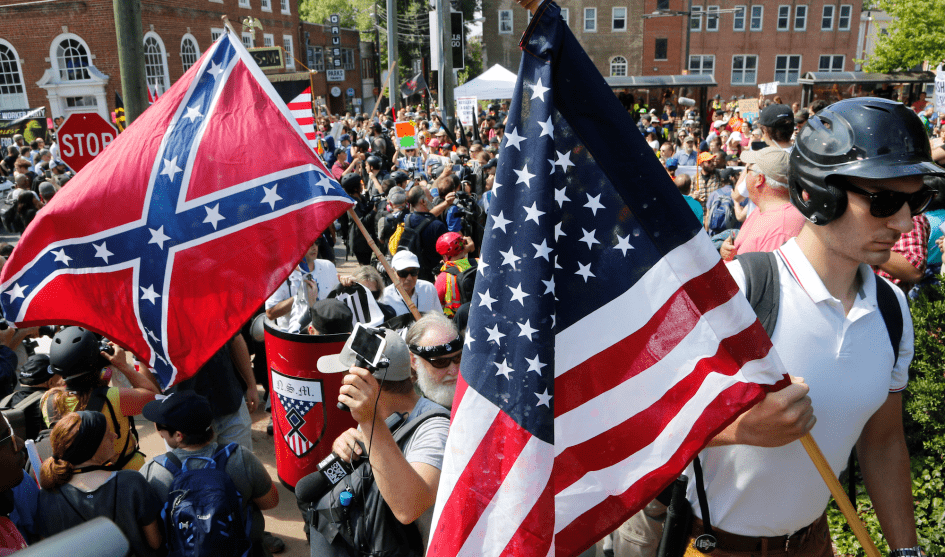BY STEWART COARD – STAFF WRITER
In recent years, Centre has taken measures to ensure a more inclusive and diverse campus, open to individuals from various backgrounds. However, our campus must contend with the difficult reality of existing in a part of the country that frequently fails to accept deviations from the norm. Although Centre has become increasingly more diverse in its student body, the policies and ideas we as a campus community have promulgated are limited to the 152 acres owned by the campus, and the rural American landscape in which Centre makes its home has historically been hostile to those who challenge long-held values and traditions.
Regarding this rural American hostility, there is an active Ku Klux Klan chapter in Harrodsburg, Kentucky, a town which neighbors Danville. The Klan is known throughout the United States for its radical ideals of racial purity, zealous adherence to traditional concepts of morality, race, gender, sexuality, and a narrow-minded interpretation of Christian beliefs. In recent years, the Klan has returned to the national spotlight with the advent of a new form of conservatism that emphasizes social and cultural issues over questions of proper governance and economics. A resentful and angry movement has developed among the American people accompanied by the rise of leaders who campaign against multiculturalism. The effects of this resurgence have been apparent in events like the gathering of White Nationalists in Charlottesville that resulted in one death and various injuries.
The chapter in Harrodsburg recently released fliers throughout their local area in an attempt to reach out to any sympathizers. Although many residents found the presence of racist propaganda to be disturbing, the local police department clarified that they could not take any direct action in response to the fliers, as they are protected by the First Amendment. However, they admitted their concern about the incident and claim to be keeping a close eye on the situation.
In the face of radicalism, it is vital for communities to provide a sense of order and unity to prevent bigotry. In terms of how the Centre Community is handling the situation, Michael Strysick, the college’s Chief Communications Officer, gives “the most credit to your fellow students, to our faculty, and to members of our staff for helping to maintain a campus culture that remains based on mutual respect and an overarching pledge of civility.” He placed a great emphasis on the importance of community members stepping up to include those from disenfranchised backgrounds. “Perhaps the administration’s greatest accomplishment is to make sure talented people are in place who act responsibly, reasonably, and provide positive role models.”
He identified Dr. Rodmon King and Kiana Fields, the heads of diversity, as vital in establishing and driving diversity initiatives. “Even earlier, our academic affairs and development offices worked collaboratively to secure a $750,000 grant from the Andrew W. Mellon Foundation to support diversity efforts, which has already had a significant and positive impact, including the hiring of new professors who have increased diversity among our faculty,” Strysick elaborated.
“Centre is creating spaces for students to discuss issues of diversity [concerning] not just the students but the faculty,” said Dr. Kiyona Brewster, a new professor of sociology at Centre who focuses on issues of race, gender, religion, family studies and qualitative methods. “Dialogue about diversity and difference is really important in creating a better community for everyone. Spending time with people who are different from you is really important and college gives you the perfect opportunity to do that.”
Dr. Andrea Abrams, an anthropology professor focused in African-American studies, pointed out the importance of personal interaction. “Once you get to know people,” she explained, “and realize this person is not anything like this stereotype, or their story is more complicated, or this is how they’re like me, it’s much more difficult to impose that on that population at large.”
Abrams discussed how several students were threatened by local community members hurling epithets and waving confederate flags. She too felt that discussion was a vital tool. “I think as an experienced individual ‘this happened to me,’ but if the community is saying ‘we take this as a group assault’, we’re a community and if you hurt one of us in this way, we as a community are opposed to this,” she said, emphasizing the importance of solidarity.
Abrams further elaborated, clarifying she felt a strong need for definite action alongside discussion. “I think it has to also be coupled with some action to get this to stop, reaching out to different organizations, [the] NAACP, different church commissions, Indivisible, whatever it takes to find the allies within the larger community to deal with this, because it’s probably happening to community members within Danville itself and not just to Centre students.”

